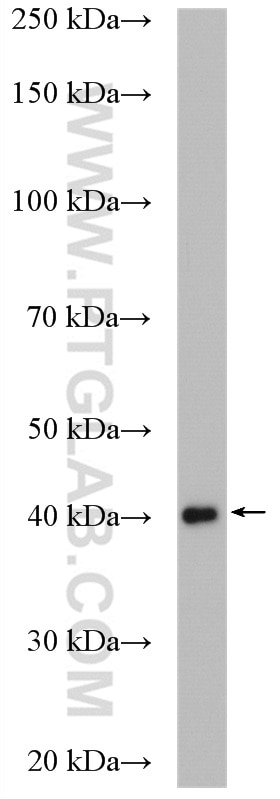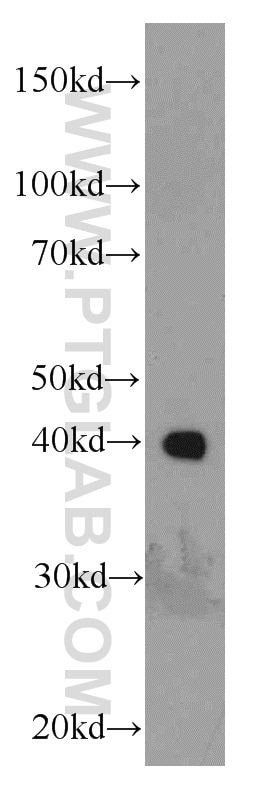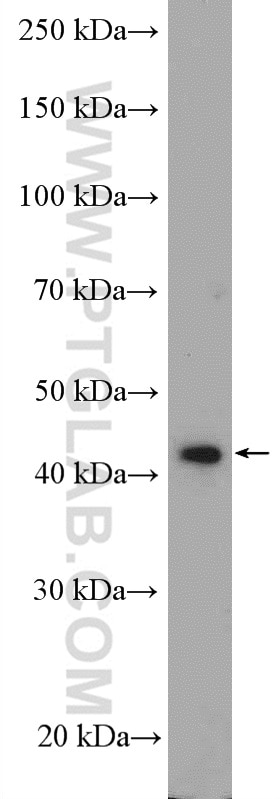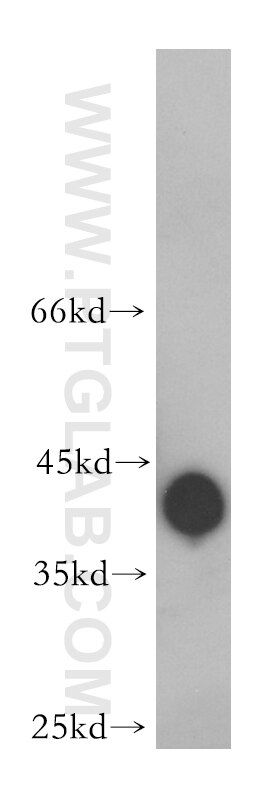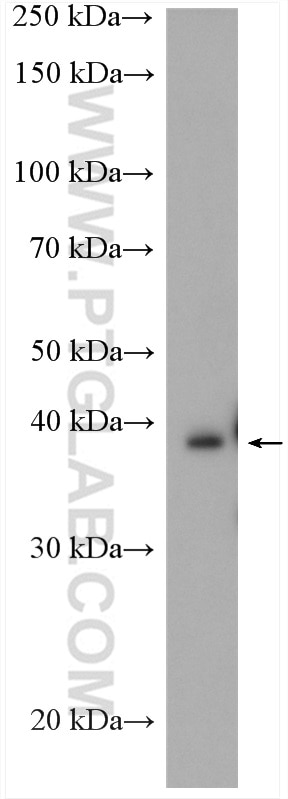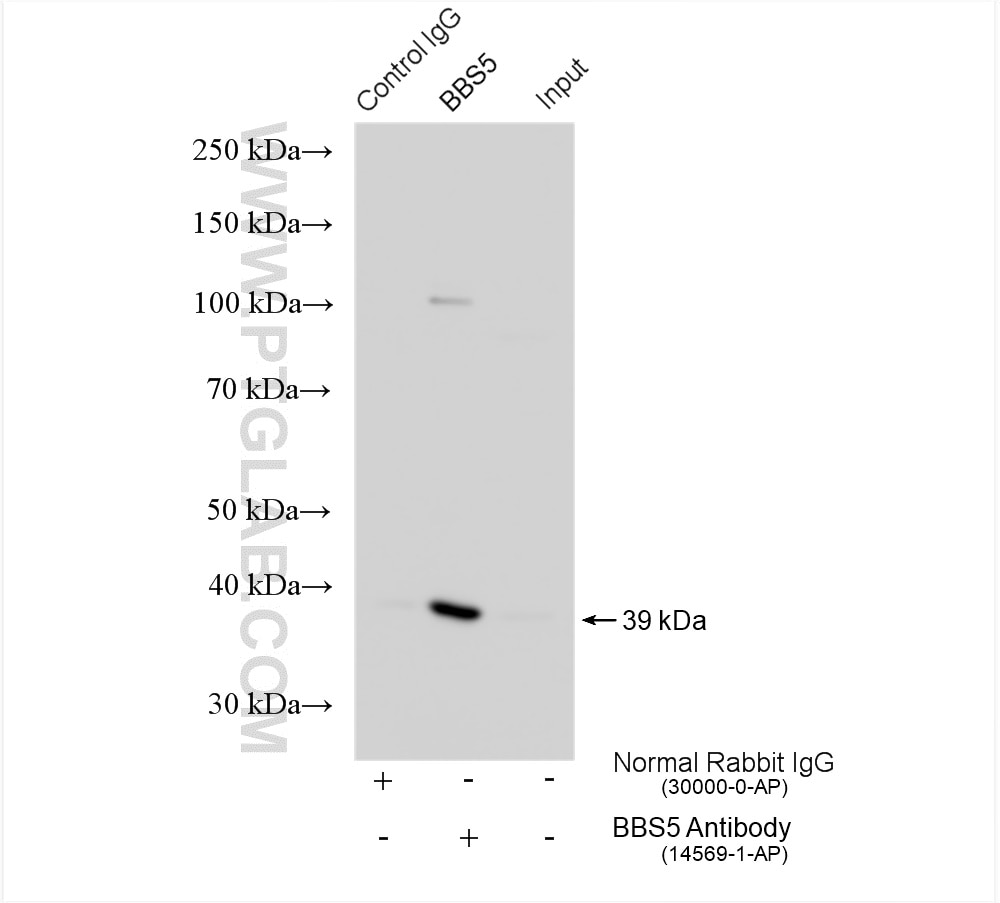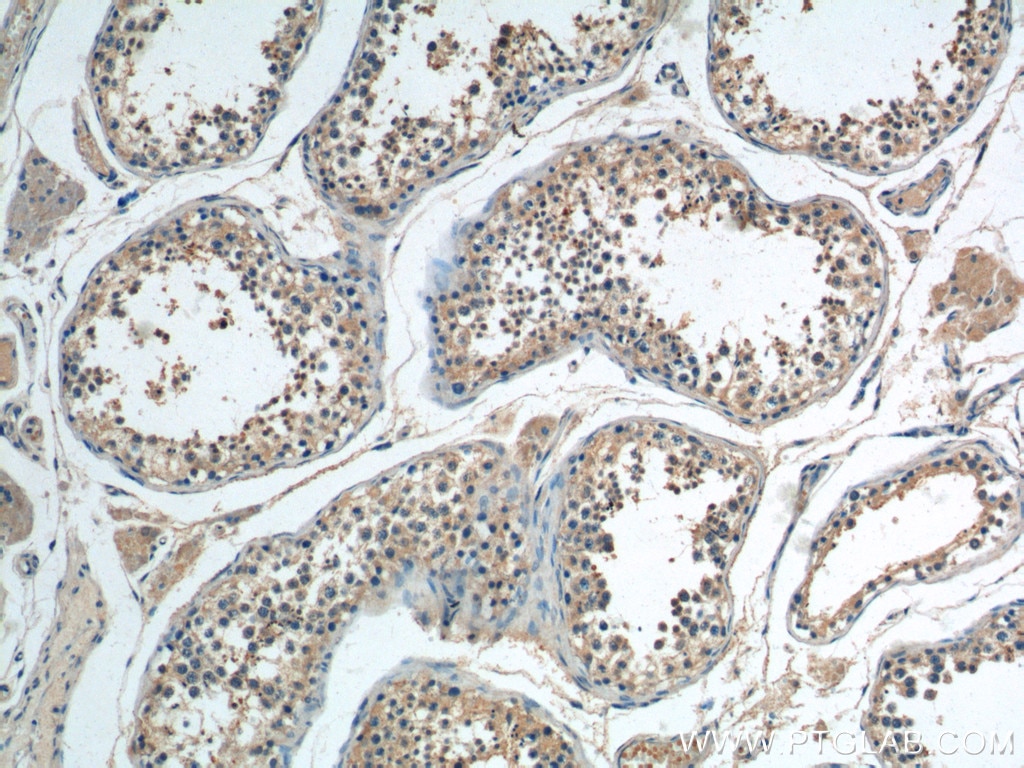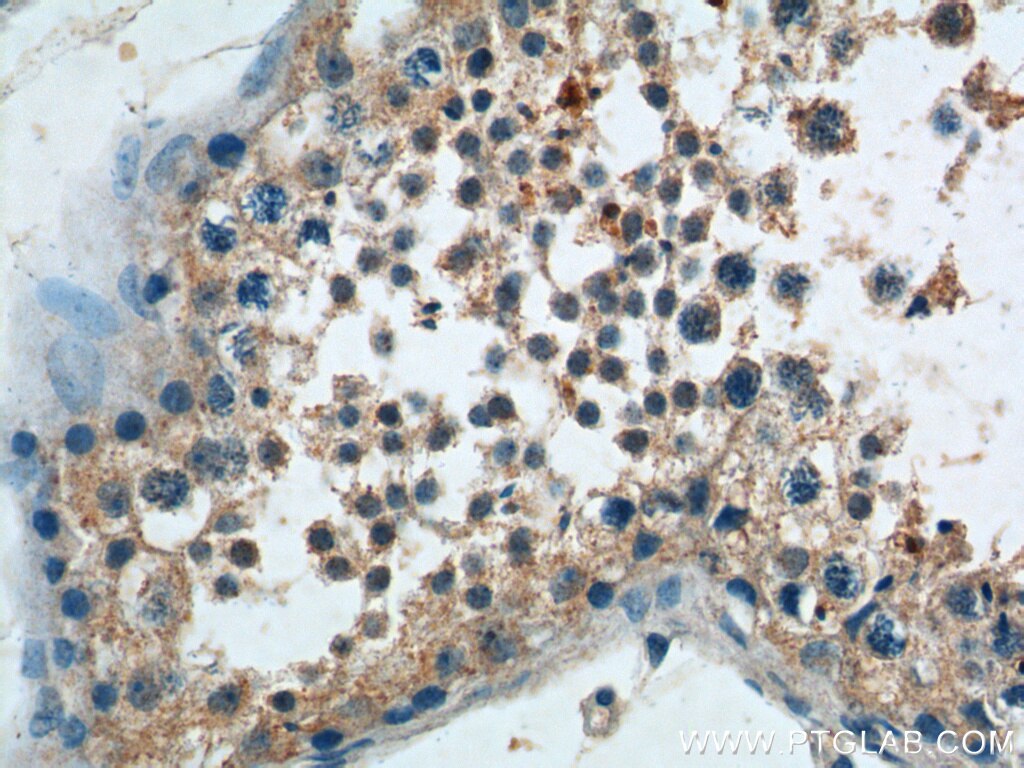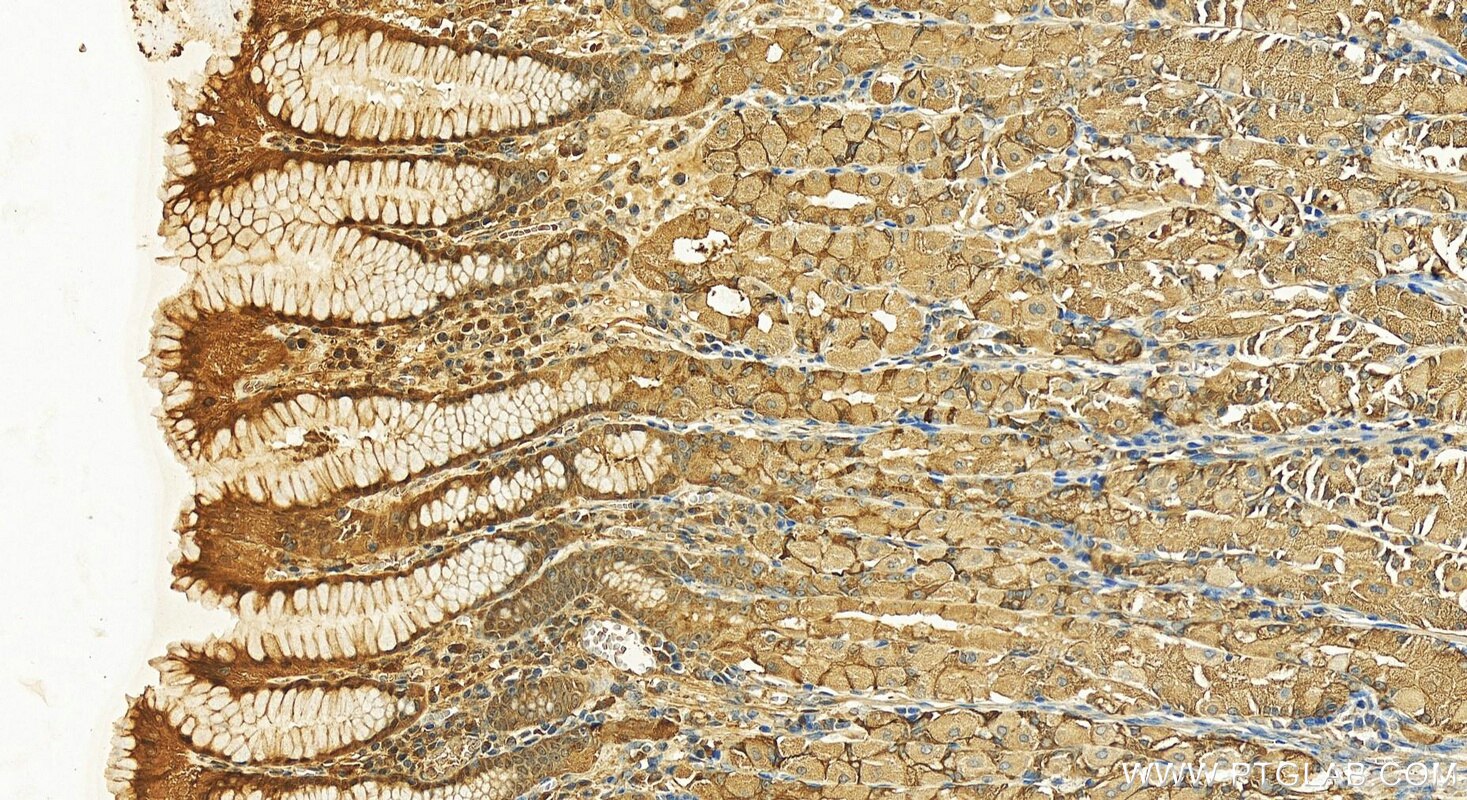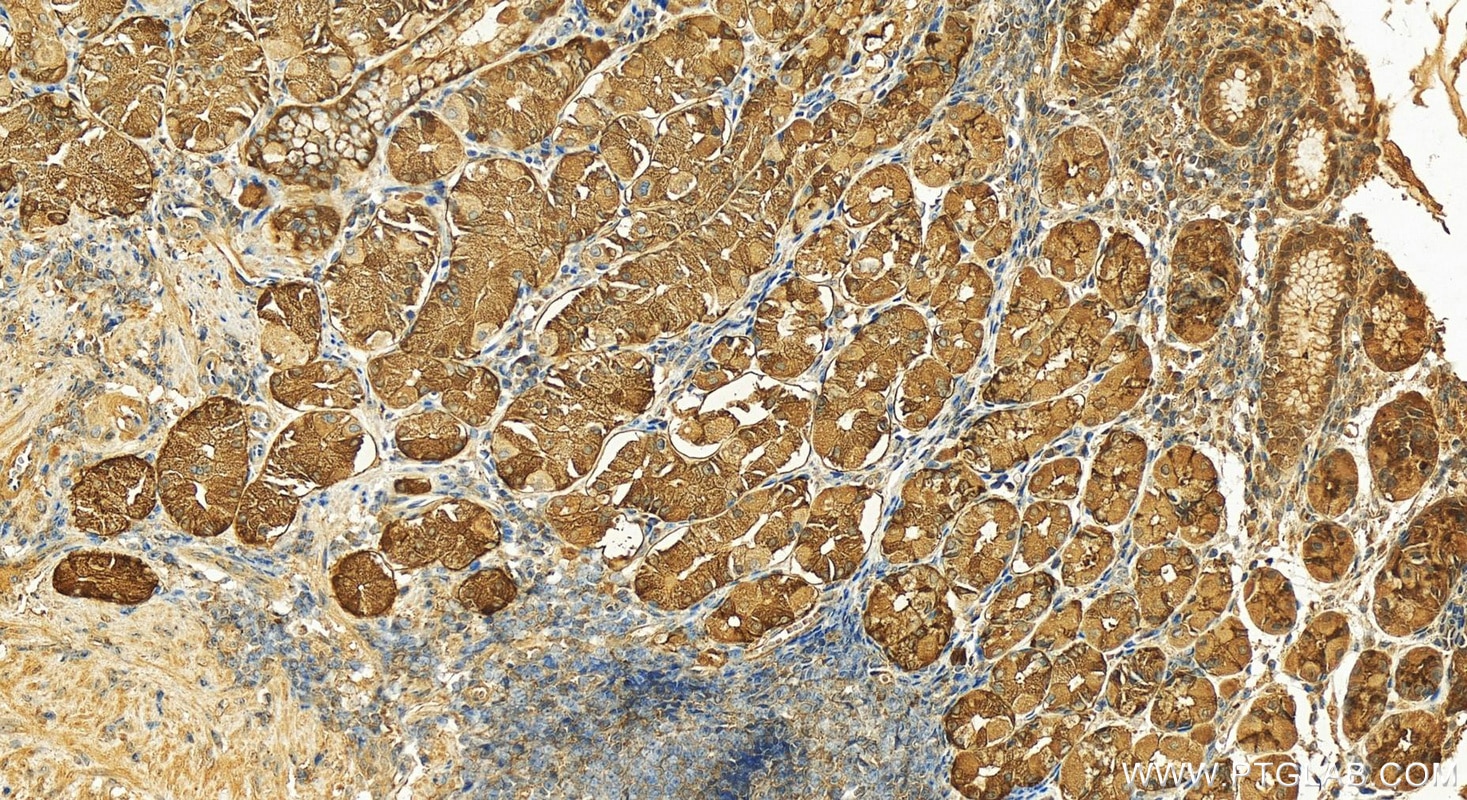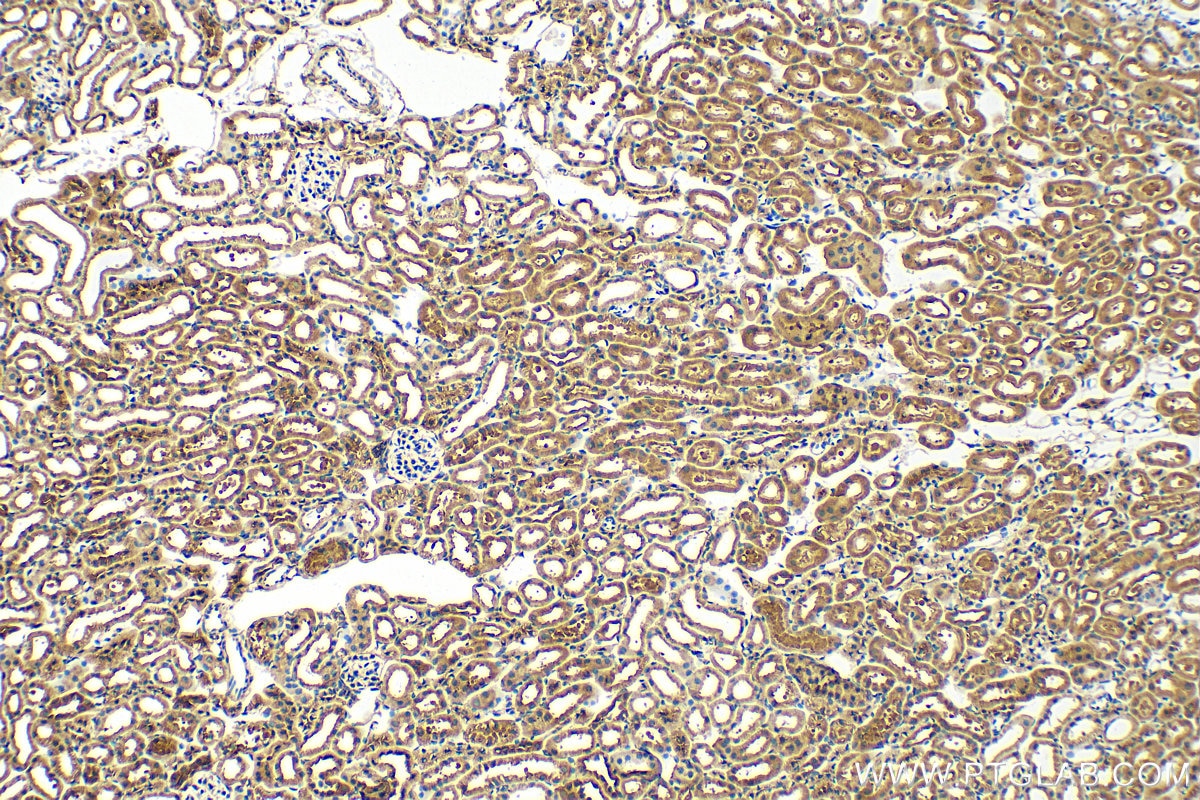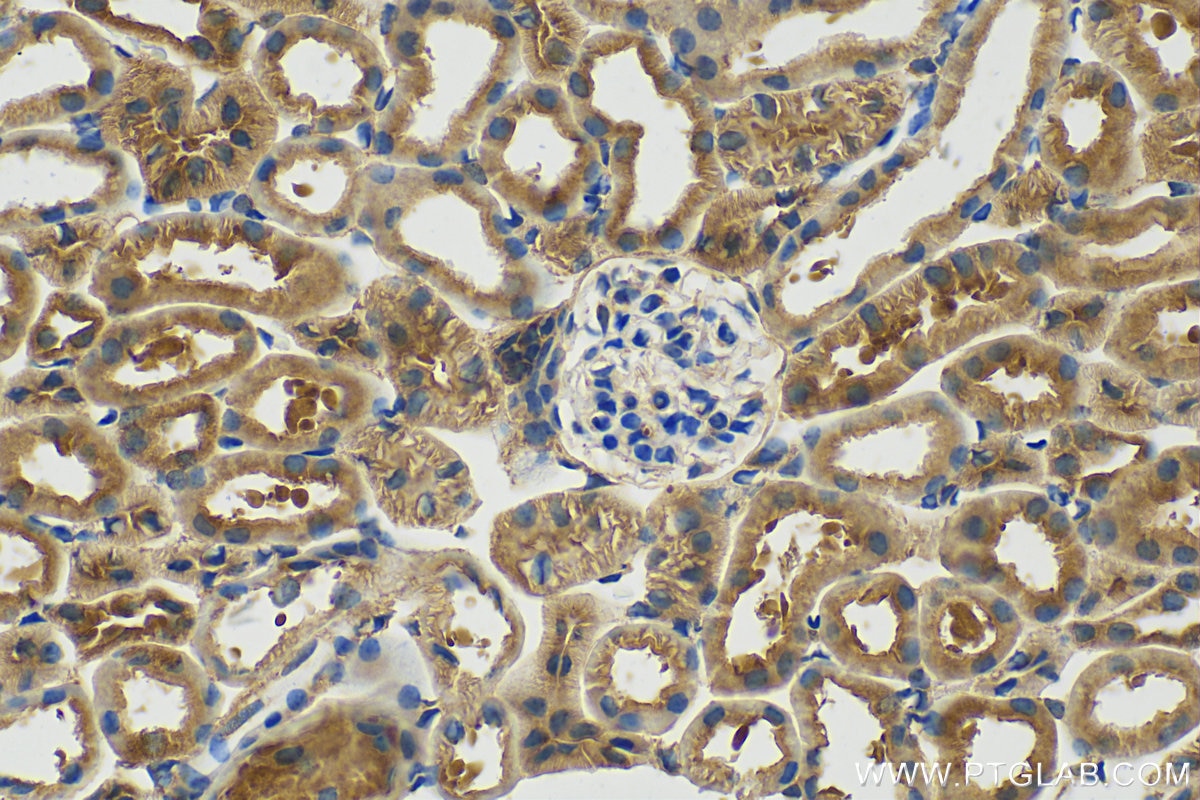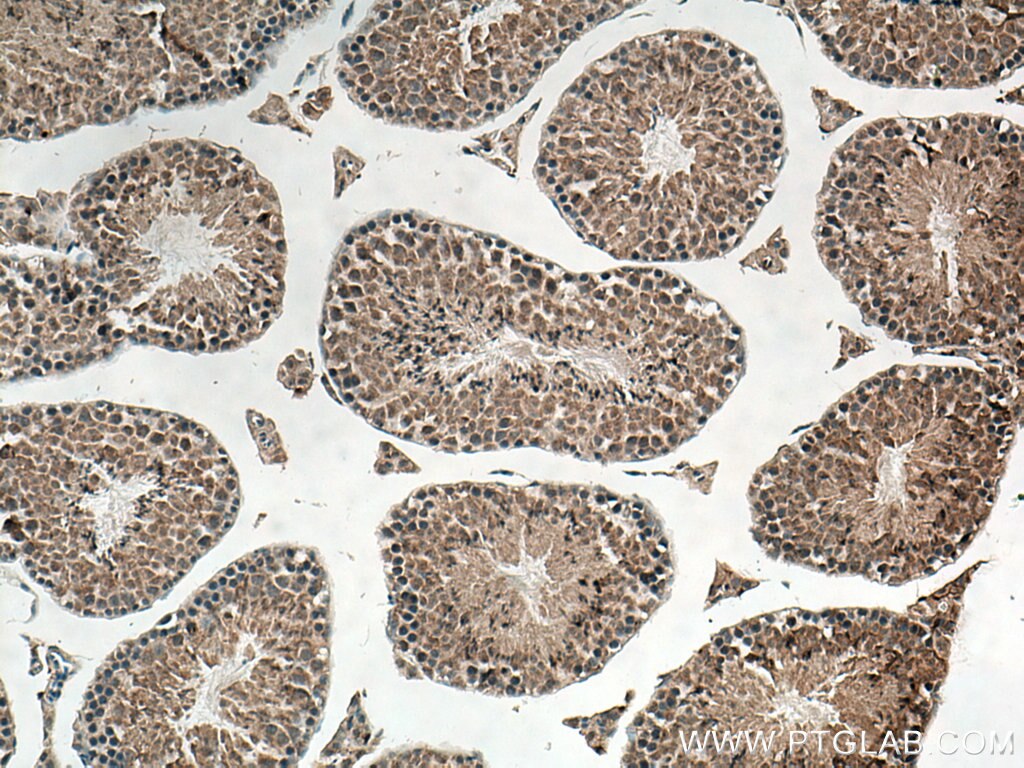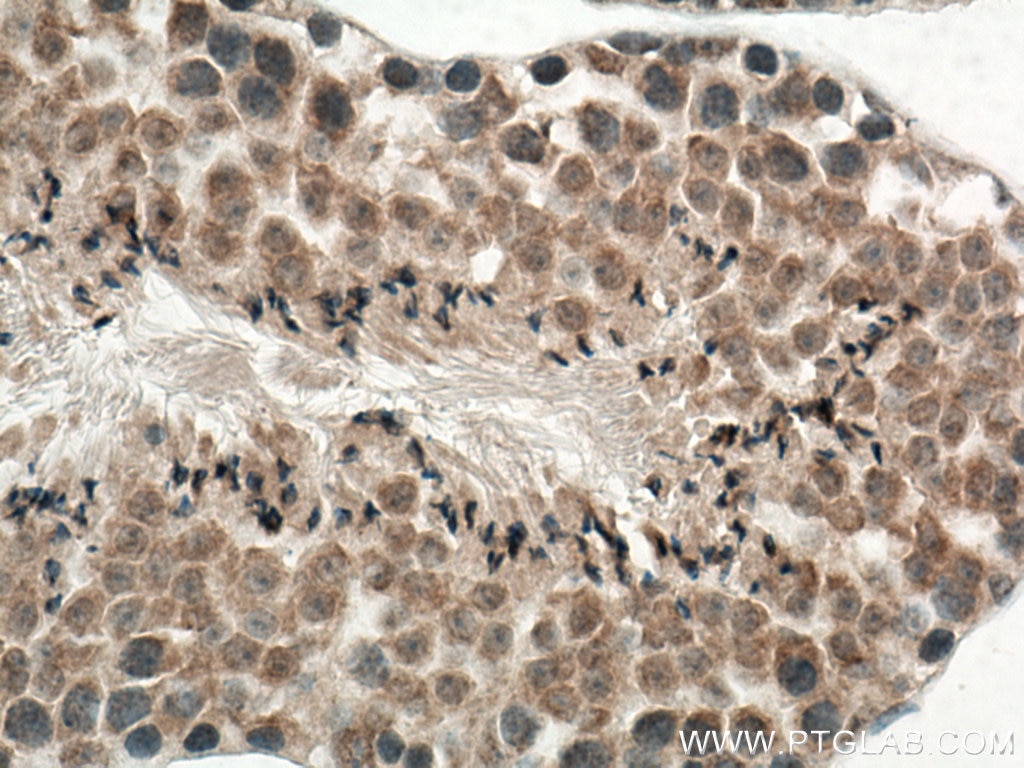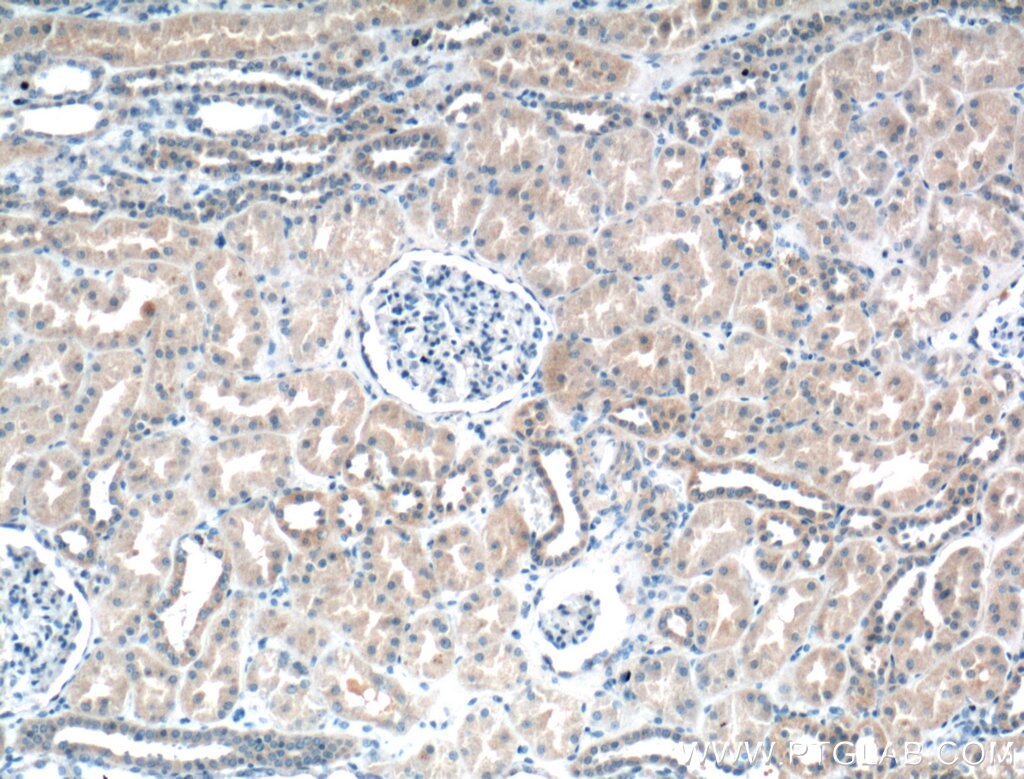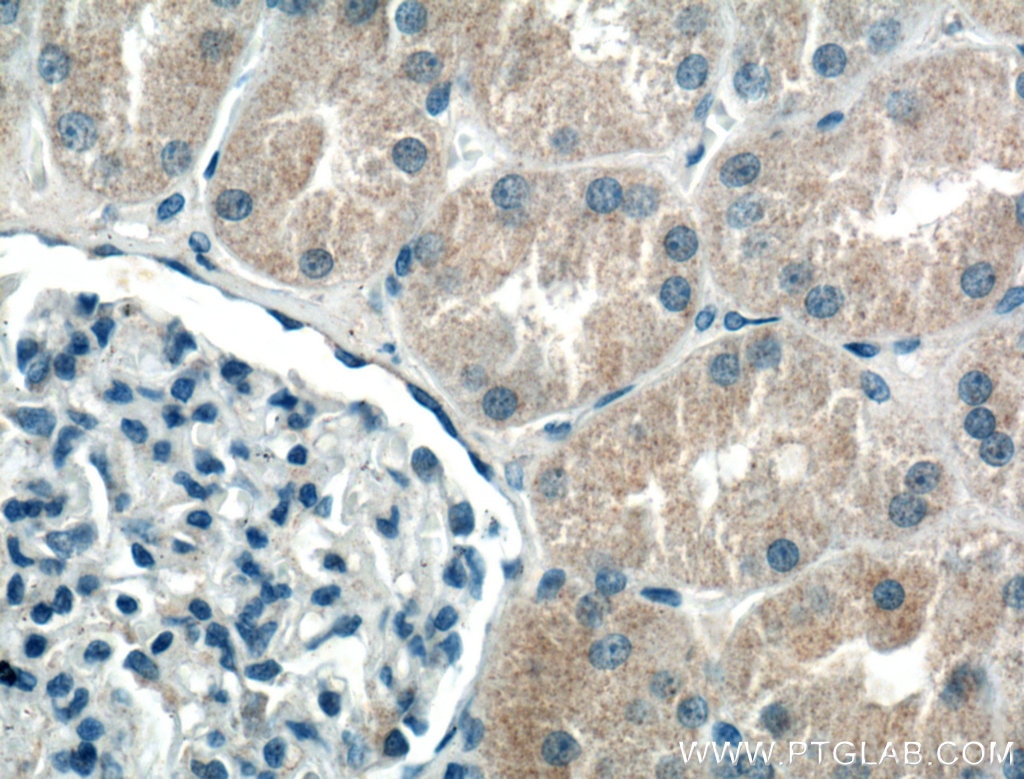Tested Applications
| Positive WB detected in | mouse retina tissue, mouse testis tissue, human testis tissue, rat testis tissue, mouse eye tissue |
| Positive IP detected in | mouse testis tissue |
| Positive IHC detected in | human testis tissue, human kidney tissue, human stomach tissue, mouse kidney tissue, mouse testis tissue Note: suggested antigen retrieval with TE buffer pH 9.0; (*) Alternatively, antigen retrieval may be performed with citrate buffer pH 6.0 |
Recommended dilution
| Application | Dilution |
|---|---|
| Western Blot (WB) | WB : 1:500-1:1000 |
| Immunoprecipitation (IP) | IP : 0.5-4.0 ug for 1.0-3.0 mg of total protein lysate |
| Immunohistochemistry (IHC) | IHC : 1:50-1:500 |
| It is recommended that this reagent should be titrated in each testing system to obtain optimal results. | |
| Sample-dependent, Check data in validation data gallery. | |
Published Applications
| KD/KO | See 3 publications below |
| WB | See 14 publications below |
| IHC | See 1 publications below |
| IF | See 19 publications below |
| IP | See 1 publications below |
| CoIP | See 1 publications below |
Product Information
14569-1-AP targets BBS5 in WB, IHC, IF, IP, CoIP, ELISA applications and shows reactivity with human, mouse, rat samples.
| Tested Reactivity | human, mouse, rat |
| Cited Reactivity | human, mouse, rat |
| Host / Isotype | Rabbit / IgG |
| Class | Polyclonal |
| Type | Antibody |
| Immunogen |
CatNo: Ag6153 Product name: Recombinant human BBS5 protein Source: e coli.-derived, PGEX-4T Tag: GST Domain: 1-341 aa of BC044593 Sequence: MSVLDALWEDRDVRFDLSAQQMKTRPGEVLIDCLDSIEDTKGNNGDRGRLLVTNLRILWHSLALSRVNVSVGYNCILNITTRTANSKLRGQTEALYILTKCNSTRFEFIFTNLVPGSPRLFTSVMAVHRAYETSKMYRDFKLRSALIQNKQLRLLPQEHVYDKINGVWNLSSDQGNLGTFFITNVRIVWHANMNDSFNVSIPYLQIRSIKIRDSKFGLALVIESSQQSGGYVLGFKIDPVEKLQESVKEINSLHKVYSASPIFGVDYEMEEKPQPLEALTVEQIQDDVEIDSDGHTDAFVAYFADGNKQQDREPVFSEELGLAIEKLKDGFTLQGLWEVMS Predict reactive species |
| Full Name | Bardet-Biedl syndrome 5 |
| Calculated Molecular Weight | 39 kDa |
| Observed Molecular Weight | 39 kDa |
| GenBank Accession Number | BC044593 |
| Gene Symbol | BBS5 |
| Gene ID (NCBI) | 129880 |
| RRID | AB_10597551 |
| Conjugate | Unconjugated |
| Form | Liquid |
| Purification Method | Antigen affinity purification |
| UNIPROT ID | Q8N3I7 |
| Storage Buffer | PBS with 0.02% sodium azide and 50% glycerol, pH 7.3. |
| Storage Conditions | Store at -20°C. Stable for one year after shipment. Aliquoting is unnecessary for -20oC storage. 20ul sizes contain 0.1% BSA. |
Background Information
BBS5 encodes a protein that has been directly linked to Bardet-Biedl syndrome. Bardet-Biedl syndrome (BBS) is an autosomal recessive condition characterised by rod-cone dystrophy, postaxial polydactyly, central obesity, mental retardation, hypogonadism, and renal dysfunction. Other associated clinical findings in BBS patients include diabetes, hypertension and congenital heart defects. BBS expression varies both within and between families and diagnosis is often difficult. Experimentation in non-human eukaryotes suggests that BBS5 is expressed in ciliated cells and that it is required for the formation of cilia. Alternate transcriptional splice variants have been observed but have not been fully characterized.
Protocols
| Product Specific Protocols | |
|---|---|
| IHC protocol for BBS5 antibody 14569-1-AP | Download protocol |
| IP protocol for BBS5 antibody 14569-1-AP | Download protocol |
| WB protocol for BBS5 antibody 14569-1-AP | Download protocol |
| Standard Protocols | |
|---|---|
| Click here to view our Standard Protocols |
Publications
| Species | Application | Title |
|---|---|---|
Nat Genet A transition zone complex regulates mammalian ciliogenesis and ciliary membrane composition. | ||
Cell The conserved Bardet-Biedl syndrome proteins assemble a coat that traffics membrane proteins to cilia. | ||
Nat Cell Biol Systematic proteomics of the VCP-UBXD adaptor network identifies a role for UBXN10 in regulating ciliogenesis. | ||
Dev Cell IFT27 Links the BBSome to IFT for Maintenance of the Ciliary Signaling Compartment. | ||
Dev Cell The Intraflagellar Transport Protein IFT27 Promotes BBSome Exit from Cilia through the GTPase ARL6/BBS3. | ||

